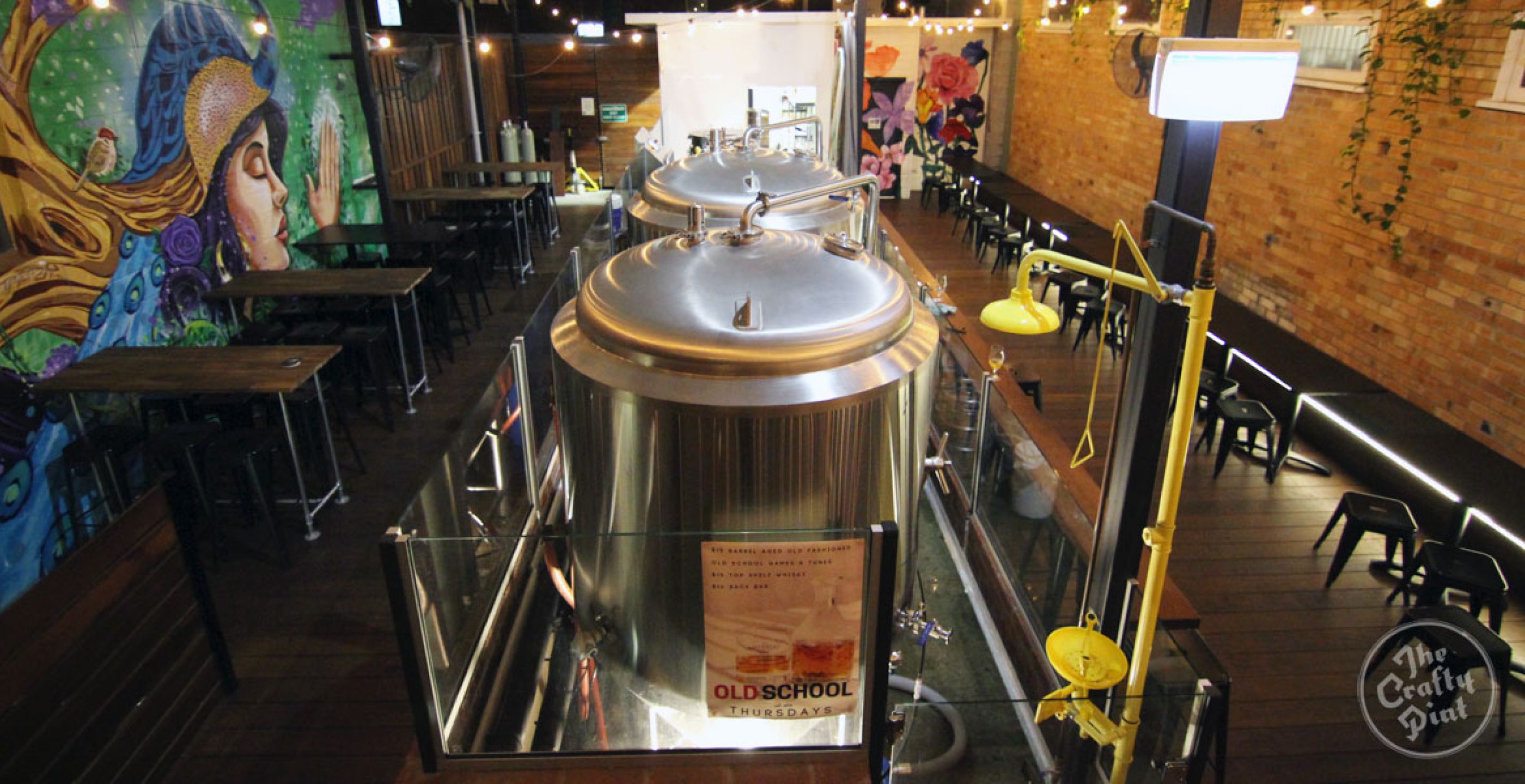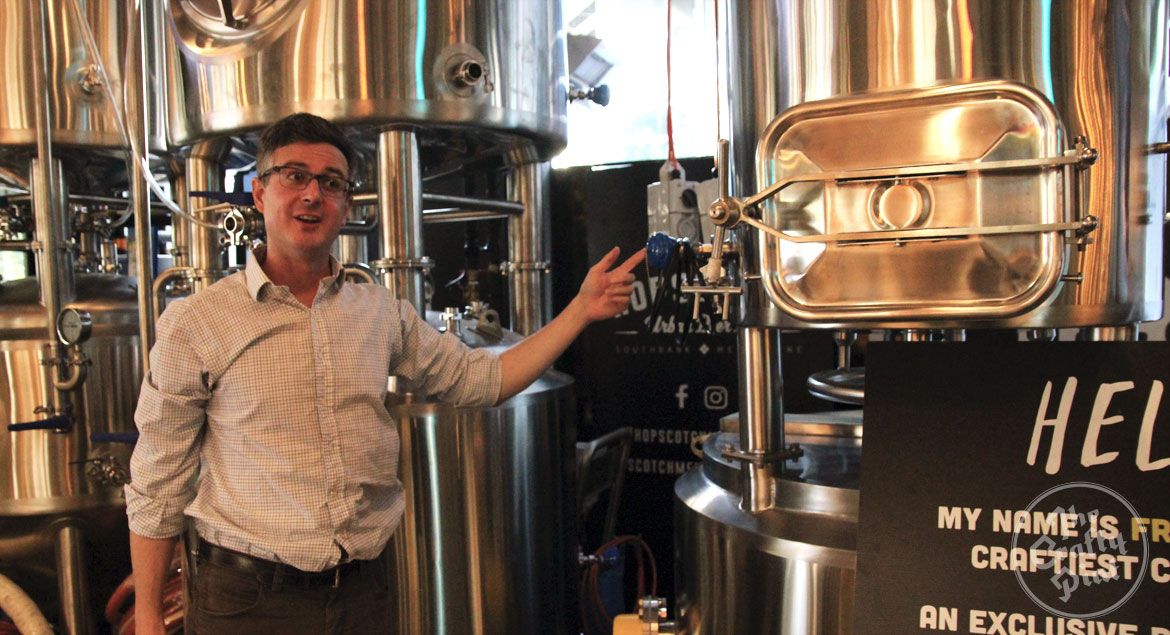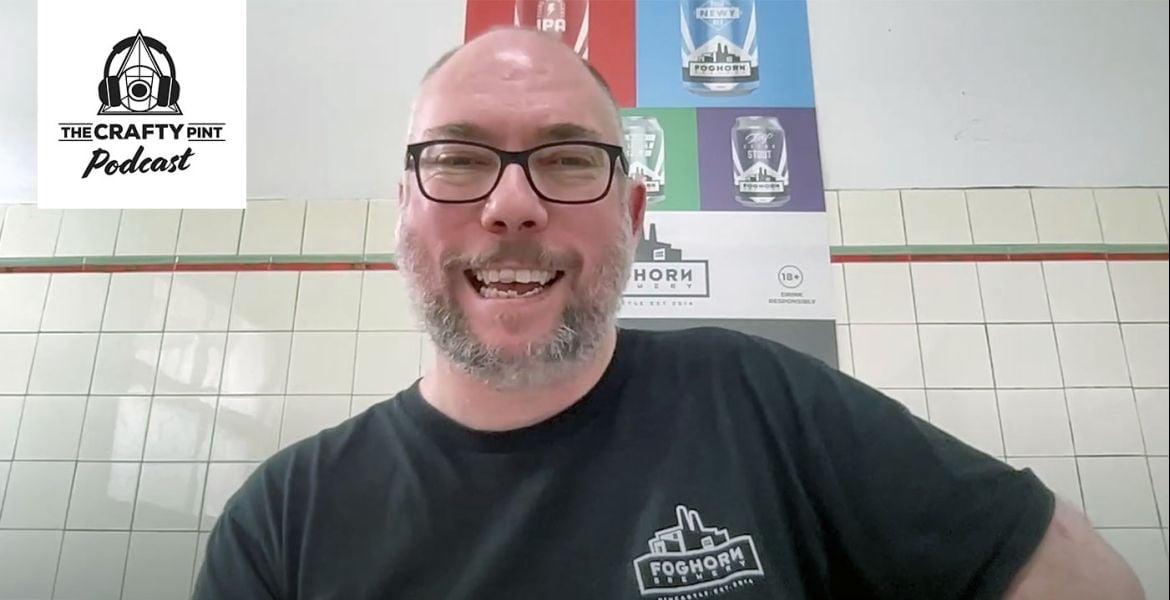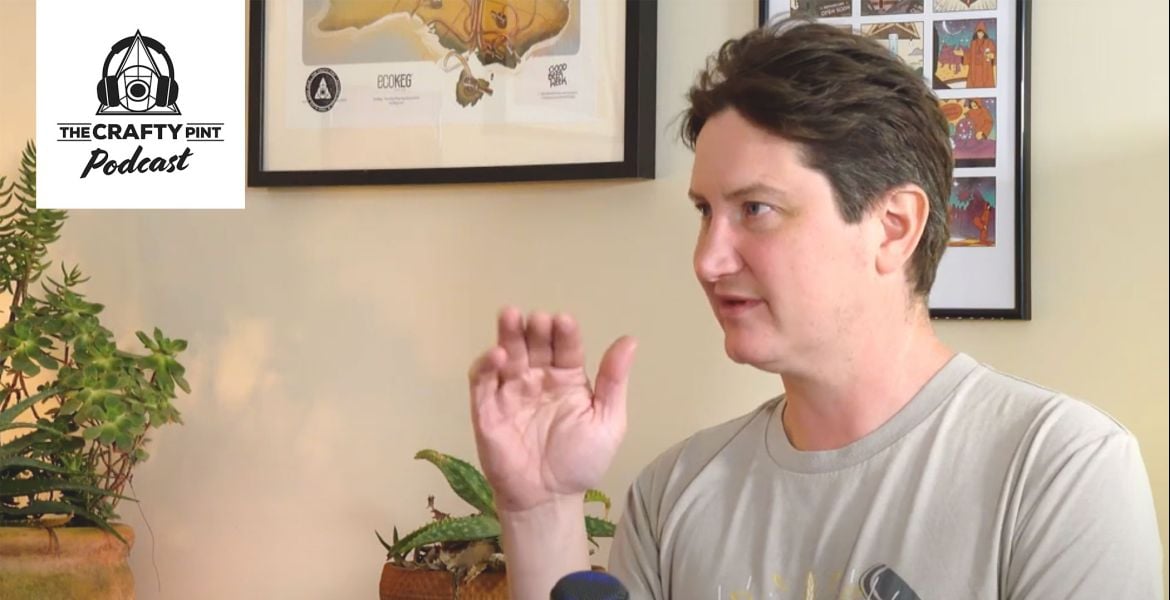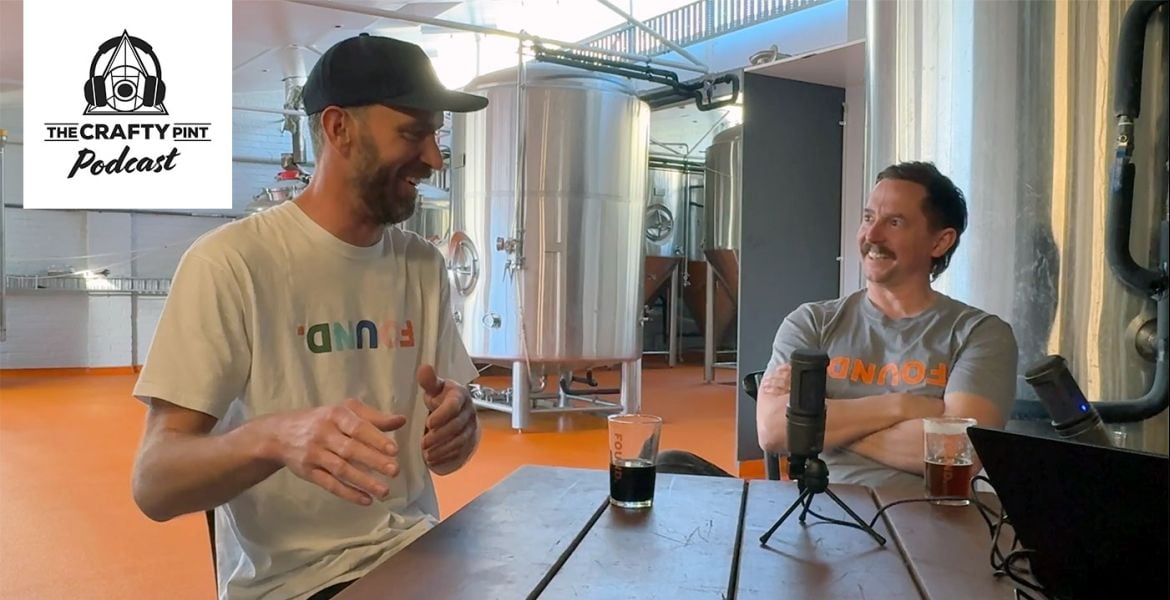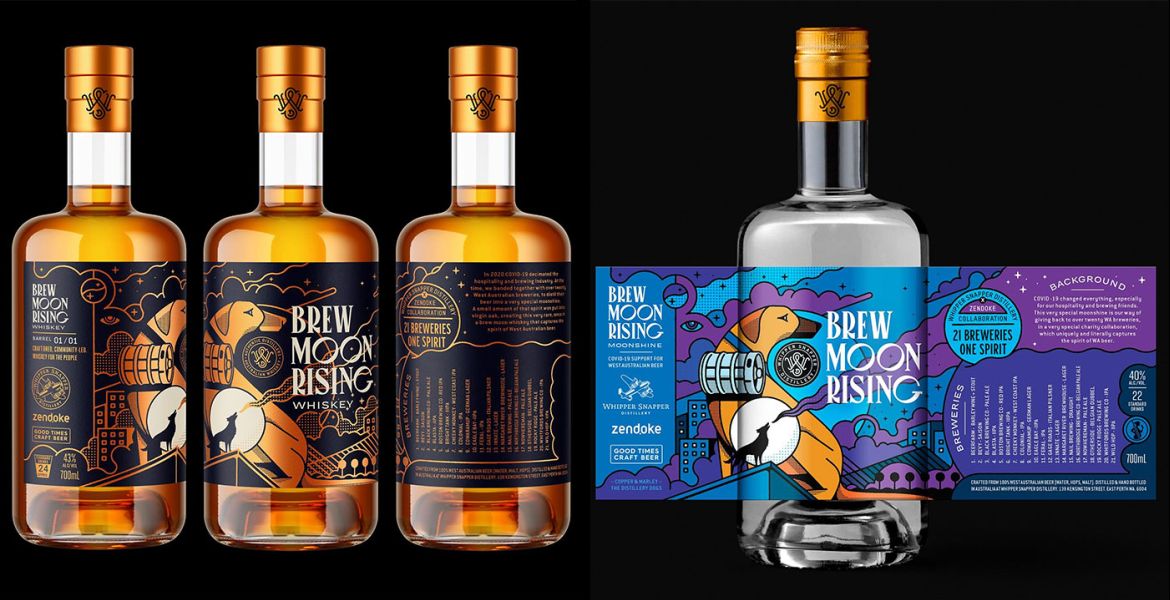As the Australian craft beer industry has gone from strength to strength, it has helped spark new businesses into life or give existing businesses new avenues to pursue. We've featured many of these on The Crafty Pint: small scale hop growers and maltsters, tap handle and decal manufacturers, for example.
It's encouraging to see the industry do more than simply change the country's beer culture and provide employment for people at brewing companies and the associated supply chain. There's even a growing business in the supply and maintenance of used wine and spirit barrels.
As of the past couple of years, there's also an Australian business that is designing, building and commissioning breweries across the country. Not any breweries either. Spark Breweries & Distilleries is responsible for creating innovative systems, even seeking and securing a worldwide patent for one of its designs.
You'll find small, pretty much nano, examples of Spark's work at locations such as Hopscotch in Melbourne and Endeavour's new Tap Room in The Rocks – just look out for the vessels stacked on top of one another rather than side by side. More common are the 15 hectolitre brewpub systems in place at the likes of Brouhaha in Maleny and the Athletic Club in Ballarat, while at the upper end of the scale is the 20 hectolitre, four vessel production brewery being set up in Marrickville at Sauce Brewing's forthcoming home.
It's the brainchild of Julian Sanders, a man who comes from a family of high-flying academics and who, upon moving on from his first engineering business in London at the start of this decade, spent the ensuing years flying a light aircraft around Europe with his wife then building a timber boat on the North Queensland coastline while reading books on brew science before deciding to turn his talents to his passions, namely saisons and brandy.
"[My wife] Helen and I built an Australian four seat aeroplane, a Jabiru J430, and flew it with a tent and folding bikes between 200 grass airstrips all over Europe," he says of the trip. "We made seven passes through the European Alps above 10,000 ft without oxygen and drank many truly excellent beers at the end of some ridiculously exhilarating days."
Since coming back down to earth and installing his first brewery at Brisbane's Catchment Brewing Co (pictured at top) in 2014, Julian believes Spark has been responsible for building more breweries here than any other Australian manufacturer in history. So we fire some questions at him to find out more in a series showcasing businesses that exist alongside craft beer we're tagging The Collaborators.
When do you notice there was a need for what Spark offers to the local beer world?
I wanted to design digital brewing systems that small businesses could use to brew consistent high quality beer professionally. I went and asked the five people who sell the most craft beer in Victoria what they thought and four said they wanted one, so I got to work.
We've been chuffed through word of mouth and repeat business to have built larger and larger production systems, a unique patented venue brewhouse and now distilleries alongside those original projects. There is an obvious need for proper engineering and local support of this kind of project – so much planning and organisation is required.
There is a hard way and an easy way to do everything. If people can sell beer and choose the right people to work with, everything else takes care of itself.
What have you brought to the market that's new?
As a small part of our product range, I designed the K500 machine and applied for a global patent at the World Intellectual Property Office in Switzerland, covering its geometry, to make the point that Australia can design machines to make unique world class beers. Nano breweries like that are the tough end of the market – for all involved – but I want to see those businesses doing well. Because they control their own retail, they can be great little businesses.
I want to make the tools that allow brewers a wider range of flavours to work with and put them in the hands of independent profitable businesses that can do exactly that.
What particular skills and talents did you have to bring this to reality?
Apart from the engineering side of things, my economics and business background. Arranging equipment finance to make it possible for any small businesses to brew on a big enough system that allows them to make solid money has been very important. This is a really crowded market with well established competitors – I decided that I needed to work hard on contributing something new and valuable, putting our clients ahead of ourselves.
"If their beer and their business are good, we'll be OK" was the rationale. Turned out to be true, thanks and respect to them. The key thing is not skill or talent but attitude – I don't pretend that I know everything and I really care about what we all do in this industry.
Was it hard convincing brewers (and distillers) to look at a new brand when there are so many established equipment manufacturers in Australia?
Not particularly. New breweries were already shopping around. Once word got out our steel is second to none, no one else has good digital control systems like Spark and our pricing is good things took off. And I'm based in Melbourne so you can go for a beer with me.
It is always the engineers who shop with Spark first, because they understand the reality of what is involved and they are smart enough to want someone like me fighting their corner and doing what I do so they can concentrate on the critical success factors of their business to ensure it goes really well.
Now you're established, do you find that people are keen to get behind an Australian business?
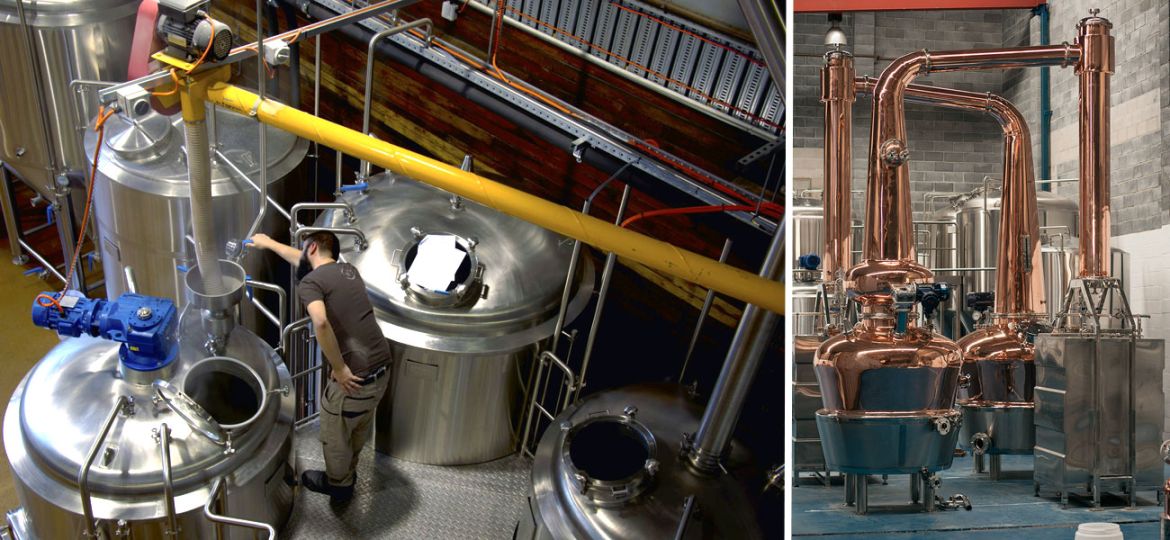
Yes they are. And it's something we receive constant great feedback on. Local support, warranty, parts and service is critical in manufacturing operations. People find that out inevitably one way or another.
How many patents have you secured for your designs?
One and I'm never doing it again. Just kidding, but not for a long time.
A proper 20 year global invention patent is a huge undertaking that I couldn't possibly have taken without the help of my patent attorney friend in Europe. Thanks Szy, I'll buy you a beer in summer.
We are going to build a Spark system together in Germany as an example of our work so we can extend business in that direction.
Do you plan to take Spark beyond brewing and distilling?
No, we have only just started, with this first dozen projects that we've built now. This is what I love, this is what I do.
And will you enter the industry with your own beers and spirits at some stage?
Sure, if the world would wake up to itself and get some respect for brandy. After phylloxera decimated European grapevines in the 1880s, whisky took over the world and brandy has never recovered. I'd love to distill, mature and blend using the amazing range of grape varietals available to us here in Australia.
The old world brandy producers have appellation controls that forbid that. That is really a huge white space of creative possibility with the slight downside of being certain commercial suicide – I can buy 12 year Cognac for $110 a bottle.
I love the white fruit spirits of Europe though, in part because their production can't scale commercially to be produced on vast facilities and sold through supermarket chains – they are community and family products made to capture the essence of spare autumn fruit.
There are a huge number of interesting and creative things yet to be done in craft brewing and distilling. Thinking from a process and system design perspective helps open up possibilities along those lines, so never say never!
You can view other articles on businesses that exist or have grown because of craft beer's rise here.





